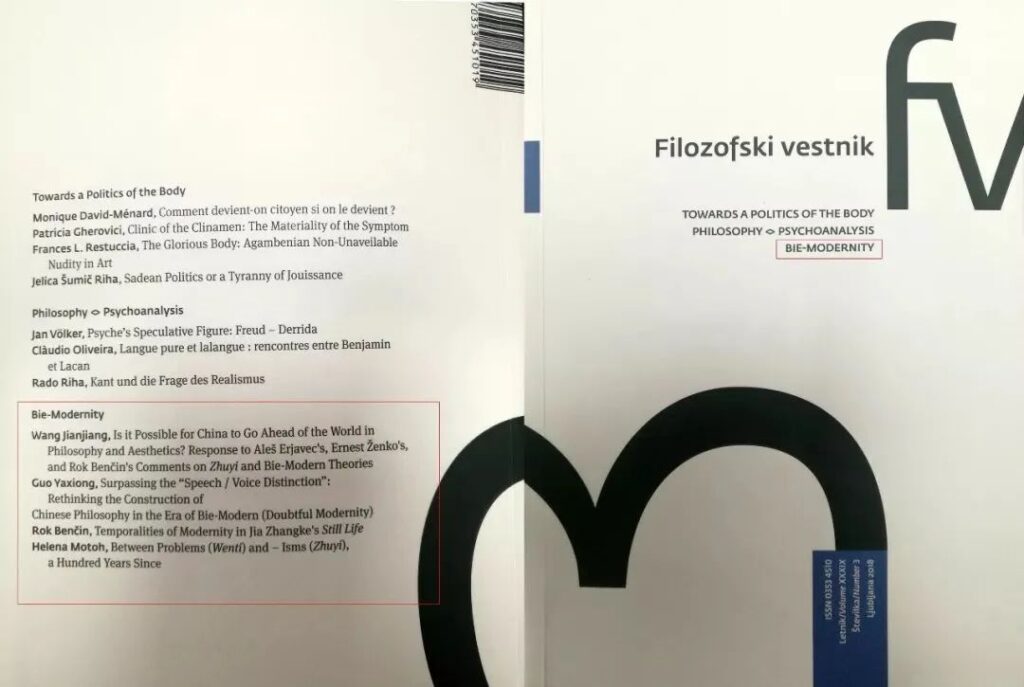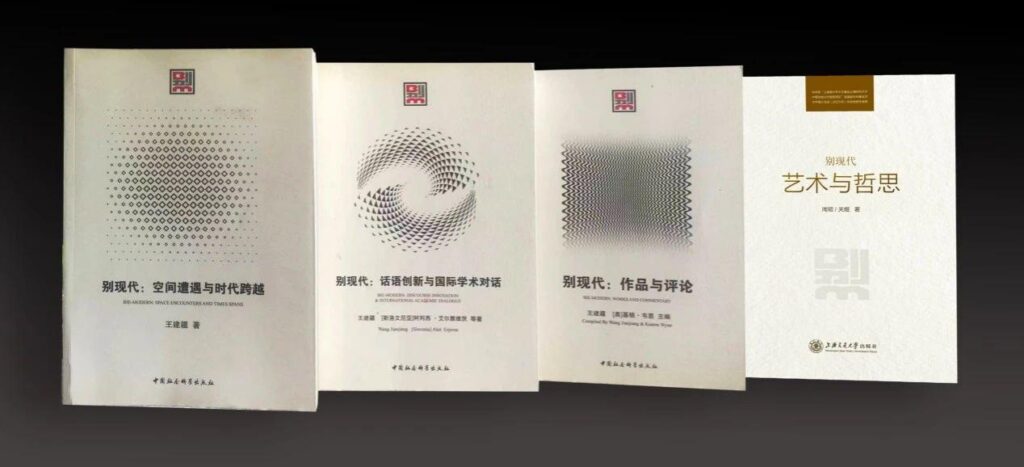Bie-modern theory and its applications were discussed at an international academic conference
It is reported that the 24th World Human-Computer Interaction Conference (HCII 2022) held recently in Sweden and the 22nd International Chinese Philosophy Conference (ISCP) and the Online Conference on Chinese Philosophy in the World Philosophical Vision held in Shanghai have both set up special sessions for the Bie-modern theory proposed by Wang Jianjiang, a second-level professor and doctoral supervisor at the School of Humanities of Shanghai Normal University. At these two international conferences, Professor Wang Jianjiang gave keynote speeches entitled The Deep Fake and the Deep Distinguishing in the Bie-modernist Cultural Computing Vision and From ‘Philosophy Three Empires’ ‘China Has No Philosophy’ to ‘Philosophy Quadrilateral’ ‘Philosophy Moment’ to See Contemporary Chinese Philosophy and Changes in World Philosophical Pattern . The international artificial intelligence research field attaches great importance to Bie-modernism’s cultural computing “deep distinguishing” theory created for artificial intelligence’s “deep fake” phenomenon. Wang Jianjiang was specially invited as a director of two international human-computer interaction (HCII) and cultural computing (C&C) conferences in 2021 and 2022. Famous philosophers, aestheticians, computer experts and young scholars from home and abroad showed their research results around Bie-modernist thought.
Bie-modern was first proposed by Professor Wang Jianjiang in 2014 at the China-Russia High-Level Cultural Forum. This term, based on China’s reality and inheriting China’s philosophical tradition, has attracted close attention and continuous discussion from many well-known experts and scholars in the fields of philosophy, aesthetics, literature and art at home and abroad as soon as it appeared. It has been followed by artists and poets, its popularity has not diminished to this day. It is showing a trend of penetrating into more extensive fields.
Abroad, Southwest Georgia State University in the United States and the University of Primorska in Slovenia, a member state of the European Union, independently established CCBMS and BMSC in 2017 and 2019 respectively to study Wang Jianjiang’s Bie-modern theory. This became a rare academic event. Italy established a website called “Bie-modernism” (www.bie-modernism.org), Wikipedia included an entry for “Bie-modern” , Baidu search results for “Bie-modernism” exceeded one billion while Bing had nearly three hundred million hits. World-renowned aestheticians such as Aleš Erjavec; art historians such as Keaton Wayne; Richardson Margaret; philosophers such as Ernst Zenko; Rocco Benz; David Brubaker ; Enea Bianchi; psychologists such as Judy Orton etc., have published articles discussing Bie-modernism on European academic journals such as Filozofski Vestnik and Art & Media or domestic CSSCI source journals in China. They believe that Bie-modernism has created an “intellectual space”, brought about a “world philosophical moment”, formed an inclusive theory that is one side of a world philosophical quadrilateral. Some European scholars have compared Bie-modern theory with current world-renowned philosophers/aestheticians such as Michel Foucault ,Jacques Derrida, Jacques Rancière andAlain Badiou etc. At present seven sessions of Bie-modern International Academic Conferences & Global Art Tours have been successfully held.
Domestically Chen Bohai, Zhu Liyuan, Huang Haicheng, Zhang Yunneng, Jiang Shuzhuo, Lu Yang, Liu Fengjie, Rong Yueming, Wang Jie, Wang Xiaohua, Wu Xuan, Xia Zhongyi, Xie Jinliang, Wang Hongyue, Shi Hong, Jian Shengyu, Yu Jianxiang, Yang Guangzu, Zhu Guohua, Zhang Wei etc., famous professors either actively participated in discussions on Bie-modern theory or gave fair evaluations on its discourse innovation value & theoretical construction significance. According to incomplete statistics more than thirty columns with nearly two hundred articles written in Chinese English Italian etc., were published on important domestic & foreign publications about Bie-modern research & were reprinted multiple times by four major abstracts series monographs were published: Bie-modern: Space Encounters and Times Spans (Wang Jianjiang China Social Sciences Press 2017); Bie-modern: Discourse Innovation & International Academic Dialogue(Wang Jianjiang, Aleš Erjavec et al., China Social Sciences Press 2018); Bie-modern: Works and Commentary (Wang Jianjiang, Keaton Wynn et al., China Social Sciences Press 2018); Bie-modern: Yishu yu Zhesi (Zhou Ren, Guan Yu Shanghai Jiaotong University Press 2021). Bie-modernism theory emphasizes originality and the construction of connotation. At present, it has formed more than 20 philosophical and aesthetic categories and methodological systems. Its research extends to the theories of philosophy, aesthetics, literature and art studies, and art studies. At the same time, it spans disciplines and fields such as law, economics, tourism studies, psychology and cultural computing in artificial intelligence, design studies etc., gradually developing into a highly inclusive theory that provides new academic growth points for many disciplines and fields.
In 2019, the People’s Daily-Quality News gave a long report on the summary of the Bie-modern International Academic Conference. The National Social Science Fund Project Deconstruction and Construction of Heroic Space in the Context of Bie-modern was successfully completed. The Guangdong Provincial Federation of Social Organizations held a special session on Bie-modernism theory. In recent years, more than 50 well-known universities such as Nanjing University, Shandong University and Lanzhou University have held lectures on Bie-modernism, which have received great response among young and middle-aged scholars. More than a dozen doctoral and master’s dissertations have studied Bie-modern theory. In this regard, Xu Bihui, a researcher at the Institute of Philosophy of the Chinese Academy of Social Sciences and vice chairman and secretary-general of the Chinese Aesthetics Society believes: ‘The ‘Bie-modern’ theory has a large space for interpretation. It can be used as a generalization of real space or as an expression with Chinese characteristics. Therefore it has ideological tension.’ An article in Shangguan News entitled Is it embarrassing to explain Chinese modernity with Western discourse? ‘Bie-modern’ is here believes that: ‘Bie-modern has value in discourse innovation and therefore also has value in discourse liberation – that is, liberating China’s modernization development from under the shadow of Western modernity discourse.’ And from Professor Luo Xiaofeng’s article in the authoritative publication Literary Review and Professor Wu Wenzhi’s speech at the International Human-Computer Interaction Conference and International Philosophy Conference on design studies respectively believe that Bie-modern theory has academic significance in poetics-poetry history and design studies-design history research.

